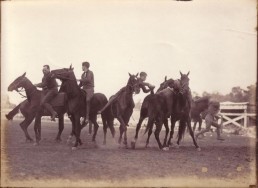Press Release
440 Negroes – one event seemingly the epicenter of inequality and injustice in America.
440 Negroes is a documentary film that tells the story of a series of events in US history that prompted the current social norm of injustice, disparity, and inequality. Directed by Malcholm Reese in association with MjrVisuals and Lincoln Penny Films.
The documentary film focuses around “the weeping time” and Savannah Ga with interviews of specialists that describe the forgotten historical facts while relating those facts to present-day America. Interviewees include Kristopher Monroe; Vice-Chair Savanah-Chatham County Historic Commission / Author “The Weeping Time” -the Atlantic, Shannon Browning-Mullis; Curator Telfair Museum, Otis Johnson; Mayor City of Savannah Ga., Dr. Amir Jamal Toure; Professor Southern History, Savannah University, Patrik Garland esq, James Jordan; Author and Historian.
440 Negroes is the detailed account of the people who were sold on March 2-3, 1859, their families cruelly separated forever. In some cases, babies ripped from the arms of their mothers, as told by the eyewitness account of New York Times journalist, Mortimer Thomson, who wrote under the pseudonym Q. K. Philander Doesticks. As I dove deeper into the story, I learned that the sad plight of these 440 people was much larger. Their story begins with the founding of the country, the grandfather of Pierce Butler, who insisted that a specific clause concerning fugitive slaves was inserted into the Constitution. Then after the Civil War, freedom spawned new hope for the four million in the South.
“By the law of war and the order of the President of the United States, the negro is free and he shall be treated as such.” To assist the free persons, General William Tecumseh Sherman issued Special Field Orders No. 15, a promise made by the United States government for agrarian reform to aid formerly enslaved black farmers. “40 Acres and a Mule” was a phrase echoed throughout the South asserting the right of newly freed African Americans to redistributed lands, particularly those plantations where they were enslaved. By the 1870s, blacks had abandoned hope of federal land redistribution and the phrase “40 acres and a mule” came to symbolize that broken promise. In Savannah, and all through the South, economic justice for African Americans was lost.








